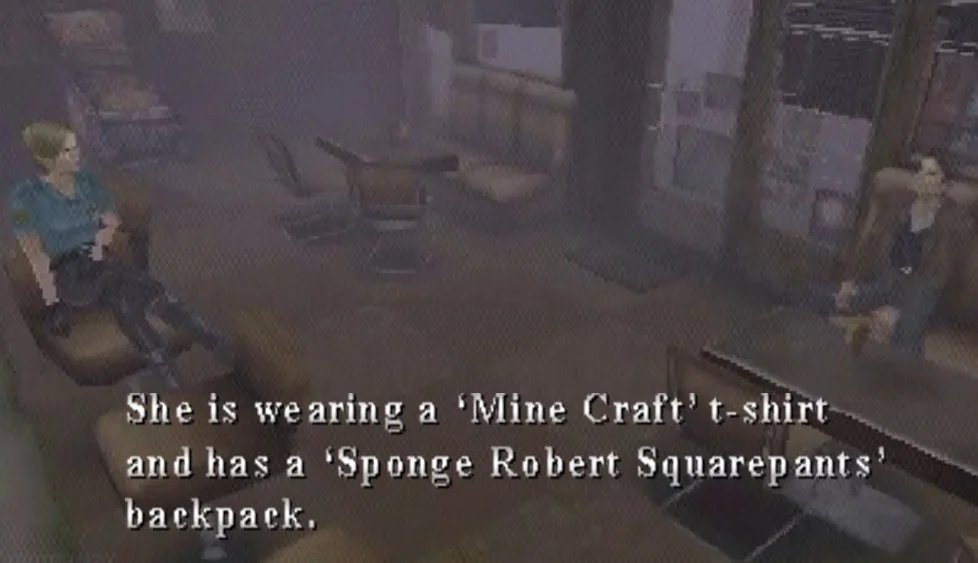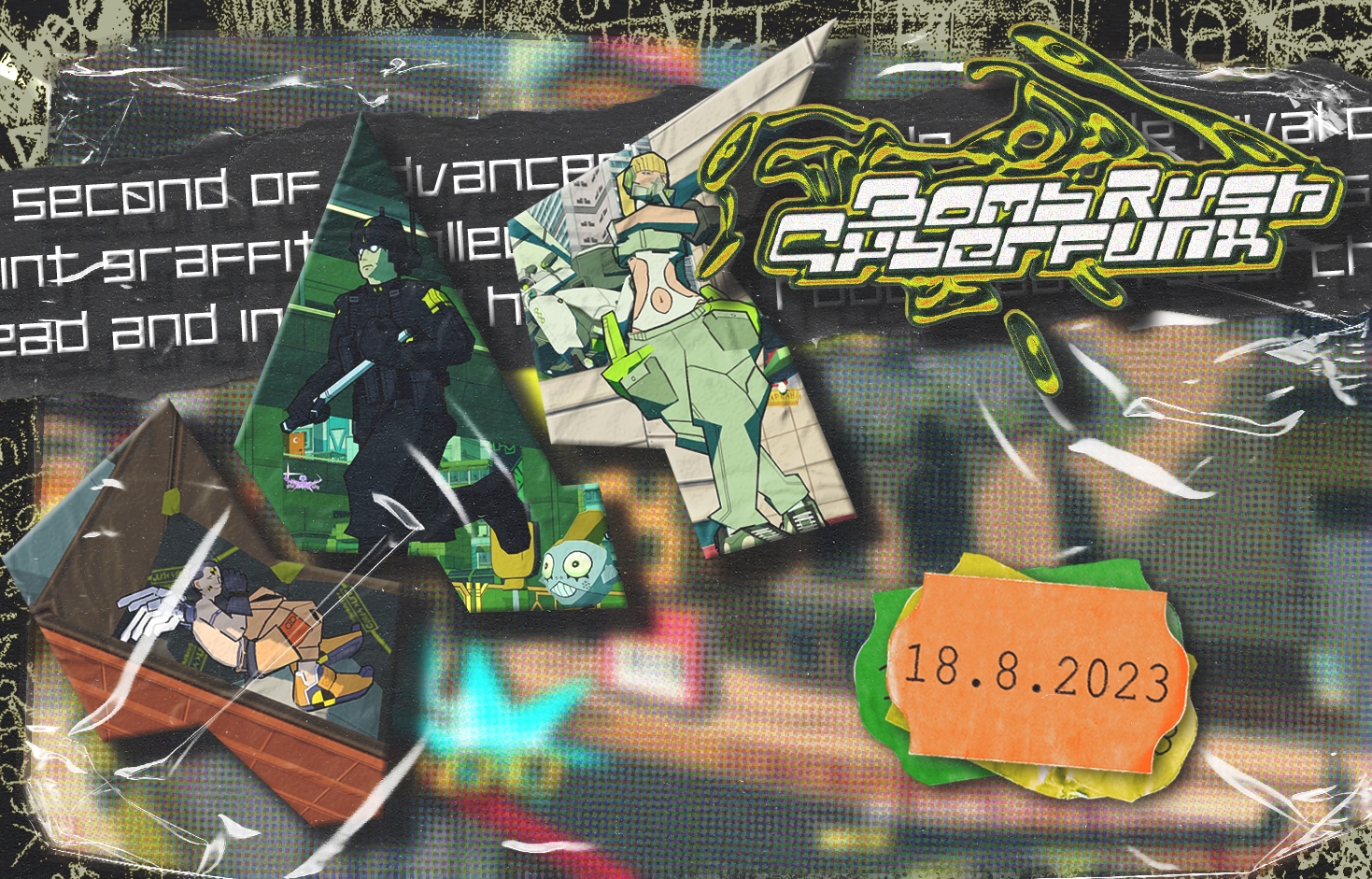Jordan Oloman Just Realised... This Is Not My Beautiful House | Winter Spectacular 2023
I’m moving house at the minute, and that involves trying to squeeze a fugacious lived experience into several hermetically-sealed Costco containers that will, in my case, fester in a concrete garage for some time—a grim process, to be sure, but one that unearths all manner of psychic damage-inducing ephemera. Birthday cards from ex-partners, Overwatch League fidget spinners, and, god forbid, an armful of lanyards from press events of questionable provenance, including some that don’t exist any more (here’s looking at you, E3 2019).
E3 2019 was real and I met Punished Mario.
This kind of thing has the power to summon a nostalgic stupor relating to the not-so-distant past. More than anything, my overflowing box of professional paraphernalia has forced some indulgent reflection on what this industry was like when I started flailing about in it, and, by comparison, whatever the fuck it is now…
As a doe-eyed and depressed second-year Archaeology student (if anyone needs a review of that Indiana Jones game, DM me), I started going to my university’s student newspaper meetings to make friends. It worked, and I volunteered to edit the gaming section when the incumbent left. The rest is history. I was so enamoured I even thought it was a good idea to start a website with one of my uni mates while we were still studying. It was called Quillstreak. Some of you might remember it.
Back then, I felt that it was too hard for the games journalism-curious to build a portfolio. Without any bylines to your name, you couldn’t just get the articles you really wanted to write up and out there with proper edits. Selfishly, I also wanted a place to host all my rejected pitch ideas. So, I bought a domain and achieved a woeful command over WordPress.
You see, sometimes you’d get lucky, but I found that lots of sites where you don’t need experience wanted to give me a quota and pay me per click — or, Jesus Christ, exposure — to write sludge. As a result, I found it hard to get a foothold and relied on the kindness of strangers and serendipity on many occasions to fumble my way into the ‘cabal’. Upon writing them down, I think all of my above scruples apply today, honestly, and with brilliant outlets dropping by the month, I’m confident it’s even harder to break in now than it was then.
Me, arriving on my first day at the Games Journalism factory:
But as long as you had an idea, and it wasn’t mean-spirited or fascist or something, you could email me with a pitch, and I’d edit your draft and get it up on the site, regardless of your experience. At that point, I had experienced some small wins, and I figured I should try and address the main issue I was facing. It seemed to work, and quite a few people who wrote for Quillstreak are now working in the games industry doing cool shit. I am proud to have played the most minor of roles in their journey. But if you’ll allow me to toot my own horn for just one second —*pRAAAAP*— on my embarrassing first-year freelance wages, I eventually stashed some money aside, put out a call for pitches and started paying people competitively for more involved work. I set up a short-lived Patreon in the twilight of the Quillstreak experiment and funnelled the little quids we did get straight into the freelance budget.
We even made merchandise.
Quillstreak lasted three years until I couldn’t afford the site fees anymore. I turned the lights off in 2019, and I’ve felt glum about it ever since. But my co-founder left the industry, and I got so busy with work that I couldn’t really commit to it any more, and was having a Bad Time Personally. So it goes. I’d like to think that it did a little bit of good. It’s been wonderful to see sites like Into the Spine, Uppercut Crit and this most beloved of tomes, The startmenuStart Menu (among many others), rise up and carry similar values, kindling the indie crit bonfire and giving so many more people opportunities to express themselves and jumpstart their careers. Given the current state of affairs, I hope more scribble blossoms bloom in the years to come.
me irl
Because let’s be honest — if this industry is to survive and thrive, we have to form communities, pool knowledge, share wisdom and create resources. Anyone who has or is still working here has their sensational stories of how they tumbled onto this wafer-thin sheet of ice which can barely stand our collective weight. I felt like we were all passing around the same £120 back then, and I feel the same now. It was probably hard for you, as it was for me, and it still is. And it can be tempting to wear those experiences like armour and believe that the next generation should have to endure something similar to ‘earn their place’ or whatever. But I’ve always thought that mindset is bullshit and just stands to perpetuate poor treatment and eyebrow-raising junior salaries.
When I got a 2:2 in my Archaeology degree and decided to try and have a go at games journalism (ooh, matron!) I went to a talk by some established journalists, looking for advice. One of them told the room that we needed to ‘Move to London and make the office coffee for a few years’ before we could pick up a useful byline. They all seemed to concur that some kind of necessary flagellation was involved if you wanted to join the inner circle. The games industry can feel like this, too. As a thick northerner without access to the bank of Mum and Dad, the sardonic way this ‘advice’ was delivered infuriated me. If anything, we should be actively removing the hurdles from the track once we leap over them, regardless of how much it hurts our legs to clear them.
Games Industry.
Stupid sports analogies aside, the events of the last few years have scared me about this pursuit's future a bit more than the usual Metroid Dread, and I’m sure I’m not alone. I don’t know whether I can reasonably keep on doing it (cue the world’s tiniest violin), and my workday is unrecognisable compared to its 2015 predecessor. I won’t bore you with the Google/AI rant — buy me a pint first, at least —but we all seem to hate each other; meanwhile, everyone else prays on our imminent downfall. We’re like a decade out from pivot to video, and it’s hard not to feel like we’re the last-picked long-form losers on the AstroTurf, avoided because of our heavy cotton get-ups while everyone else is dripped out in sweat-wicking sponsor-friendly polyester.
The sports analogies really have to stop now. But you get my point! Maybe?
I still love my job and wouldn’t change it for the world (until I inevitably have to). But I don’t know how we revitalise this corner of the internet and make people care without debasing ourselves — or being famous already. Six-second reviews? Esoteric newsletters? Worker-owned SEO cults? Sustainable op-ed compost pulp? There are a few ideas. Camaraderie is always a good place to start, though.
I’ve started pivoting to graphic design.
In one of the Writer’s Discord’s I was in many moons ago, we had a channel where we would post our wins — say we landed an idea we really wanted to write or something. In that same spot, a few of us advocated for a channel where we would post our losses, too. We’d all talk about our rejections and then workshop where to send those misfit ideas to get them sold. I found the vulnerability of this process revolutionary for my output. One pitch idea that I put in the losses channel — with a little help from my friends and the pestering of several editors — ended up being this article for The Washington Post. And I wasn’t the only one who benefitted from that initiative. When we put our heads together, the worst of feelings can be galvanised into something good.
Alright. I can hear that weird music from The Game Awards playing in my head now, and my prose is getting haggard, which is the precursor to posting cringe. I’ve become that old da in the corner of the local, rambling on about the glory days of the toon. Take care of yourselves. I’m gonna go lie down and take it easy now (squeeze a 100-hour review game into a weekend).













